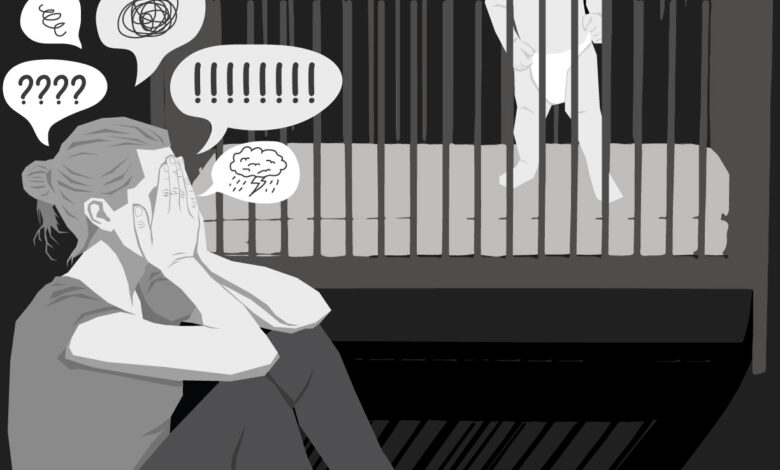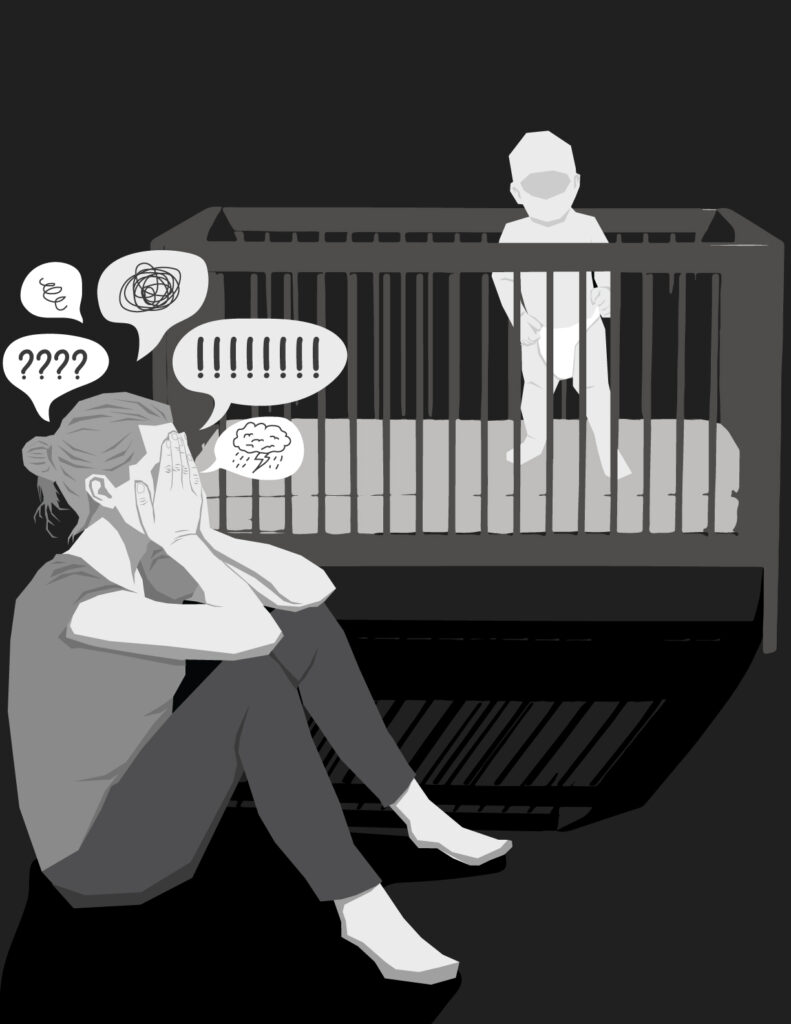
The postpartum problem: systemically failing parents
By Kaitlyn McCormick
Women’s reproductive healthcare rights, or lack thereof, have been making headlines for the better part of the past year and beyond. Between the conversations of who can have babies and when and why, one major question falls short: how do we care for new parents after they’ve delivered, and are we doing enough?
One condition that has made its way into the forefront of recent discussion is postpartum psychosis. According to the Cleveland Clinic, postpartum psychosis, while rare, affects 320 to 9,400 births in the United States each year and 12 million to 352.3 million births globally.
Receiving national attention, Massachusetts mother and nurse Lindsay Clancy was arraigned remotely from her hospital room in February following the deaths of her three children, ages 5, 3 and seven-months old the previous month. Clancy allegedly attempted to take her own life in the aftermath of the incident. Clancy is accused of strangling the children in her home with an exercise band, multiple sources report.
Since then, the topic of postpartum psychosis has increasingly surrounded the speculation of her case.
A series of attorney statements and information compiled by The New Yorker’s Jessica Winters recaps a suspected timeline of Clancy’s story. The information includes reports of Clancy journaling about her confiding in her husband regarding recurring suicidal thoughts, at least once mentioning thoughts about harming her children. A pre-Christmas evaluation at Women & Infants Hospital Center for Women’s Behavioral Health, in Providence, Rhode Island, however, resulted in no diagnosis of postpartum depression.
On New Year’s Day, Winters reports Clancy voluntarily checked herself into the McLean psychiatric hospital, in Belmont, Massachusetts, and she was discharged within a week with, again, no postpartum-related diagnosis. Various reports note that Clancy was prescribed at least 12 different medications between October 2022 and January 2023.
Clancy’s lawyer, Kevin J. Reddington, claimed that the mother was overprescribed a series of medications used to treat anxiety, psychosis and mood disorders, and is someone who “suffered grievously as a result of what possible could be postpartum depression, postpartum psychosis,” as reported by the Boston Globe.

The purpose of this piece is not to equate any mental health disorder with the tragedy the Clancy family endured or to promote a stigma, rather to draw awareness to the ways that mental health issues faced by women, especially new mothers, continue to fly under the radar.
In response to Clancy’s story, moms who have suffered postpartum mood disorders have took to social media to share their own experiences.
On TikTok, one user captioned a video compilation of her and her newborn in part, saying, “I suffered in silence because I thought I was insane — that is until my husband realized what was happening and immediately got me help. To this day I’m still afraid to admit I had postpartum psychosis. … I stand with the Clancy family, and am thinking of those sweet babies and mom and dad as they navigate through this world that failed them.”
Another shared a video about the intrusive thoughts she suffered postpartum, recounting fears of hurting herself or her baby. “Mothers with these [postpartum] intrusive thoughts are not bad mothers. We need people to care. We need people to know the signs,” the user wrote.
While postpartum psychosis may be hitting timelines and newsfeeds harder than usual, it is far from the only mental health issue impacting people after giving birth. Much less rare is postpartum depression, which the National Institute of Health reports impacts 6.5% to 20% of women.
Following the Supreme Court of the United States’ June 2022 reversal of Roe v. Wade, many states across the country have implemented numerous abortion bans ranging in consequence and severity. As laws are passed across the country that will probably result in higher birth rates and less accessible reproductive care procedures, the health and safety of childbearing people need to become an even higher priority.
If the number of births are going to increase, which they likely will, as reproductive resources dwindle, then there should at the very least be more resources and conversation destigmatizing the physical and mental healthcare of women and childbearing people.
It should not be seen as taboo in 2023 to speak up about real issues of mental health, and no new parents or family should be made to feel alone or trapped in their struggles or failed by a system intended to help them.



